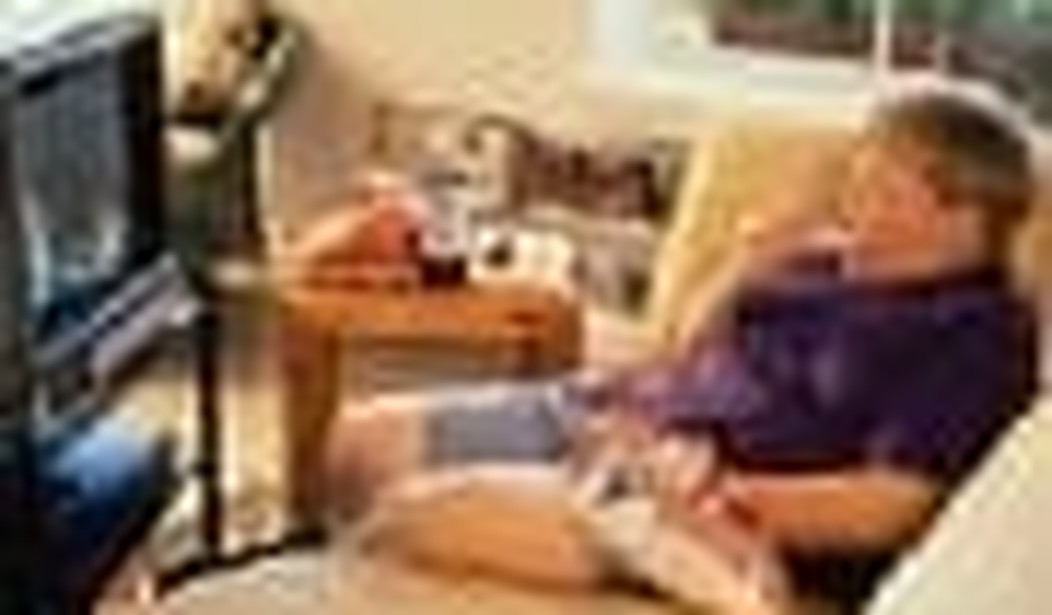For over a century, the American lifespan has steadily increased. Now, with one in three children clinically overweight, that trend may actually reverse. Every week new studies announce more alarming consequences of childhood obesity, from juvenile diabetes to acid reflux, joint deterioration, and emotional or mental health issues. The latest findings tie childhood obesity to signs of early heart disease. In other words, overweight children are facing the same health problems in their tender years that one would expect to find in a middle-aged, out of shape adult.
Not surprisingly, big money is being poured into research on the causes and possible solutions to address the problem. Experts routinely cite lack of outdoor playtime as one of the biggest contributors to expanding waistlines in childhood, particularly when that results in children mindlessly watching television and “sleep eating” — binging calorie-laden foods without notice.
According to some experts, those viewing hours during which our youngest consumers are force-fed streams of ads for fast food meals may account for a significant chunk of our childhood obesity problem. As a result, some claim a ban on fast food ads could help as many as 18% of our overweight children to slim down. Others recommend a daily “green hour” during which parents turn off the television and compel their children to play outdoors.
All of which is well and good, except that it overlooks the true cause of childhood obesity: it’s hereditary. Oh, not in the genetic sense, although there is research showing an overlap between the two. But in reality, childhood obesity does ultimately come down to the parents and the food choices they make. (To make matters worse, food choices made as early as pregnancy may lead unborn children to grow up obese.)
Consider the way we start our kids off in the morning. We all know that breakfast is considered “the most important meal of the day,” and yet few families have the time to sit down and eat their meal together as our grandparents did. Now breakfast is something that — if our children eat it at all — is usually sugar-coated, and often eaten on the go: a Pop Tart (190-210 calories with up to five teaspoons of sugar) or a handful of breakfast cereal (with sugar often accounting for one-third of the weight). In fact, we parents are so busy that many of us opt to have our kids eat breakfast at school, where, although the menus tend to be healthy, there’s no one standing over our kid telling them to eat their fruit and not just lick the jelly off of their toast.
It carries on throughout the day, too. Certainly, schools are taking steps to offer healthier food choices, and many districts are banning snack and soda machines now. Yet at the same time, more schools are permitting children to snack in class — something unheard of in previous generations. And where do those snacks come from? From the very same home where they got the sugary breakfast foods earlier in the day and to which they’ll be heading home to eat in front of the television later. Because that’s something else that’s changed right along with our kids’ waistlines: families increasingly eat dinner in front of the television, not around the table.
It’s not something we, as parents, like to hear and yet it’s precisely what we need to realize: if our children are fat, the chances are we bear a big load of the blame. Kids aren’t the ones pulling the minivan into the drive-through lane at McDonald’s for dinner between dance lessons and karate practice. Again. They aren’t the ones zipping past the produce aisle and dried beans in favor of high-fat, calorie-dense convenience meals that promise to be ready after five minutes or less in the microwave. They don’t keep files crammed with the take-out menus for nearby restaurants, nor program the phone number of the pizza joint on their cell phones. Parents do.
So when it comes to wondering why our children are overweight, we need to spend a little less time looking at their chubby arms and legs and more time looking in our own mirrors. After all, we’re presumably the grown-ups. To us falls the task of saying “no.” Of making short-term decisions — like what’s for dinner — based on long-term health consequences. Of exercising the self-discipline and time management needed to prepare meals that don’t harm our kids That is our job.
It’s a job that parents of overweight children better get serious about performing, too, or they may lose their kids entirely, and not necessarily due to the dire health consequences they’re allowing their children to suffer. In Britain last year, a child’s excess weight was a factor in over 20 child protection cases, and just this week a six-year-old boy was taken from his parents care solely due to his obesity.
Think it couldn’t happen here? Then, next time you’re pulling into McDonald’s for dinner (again) or reaching for that microwaveable high-fat, high-calorie dinner-in-a-box, ask yourself which entity requires you to get your kids vaccinated and send them to school for their own good and what would happen to you if you blew off that responsibility because “it’s not convenient.”









Join the conversation as a VIP Member